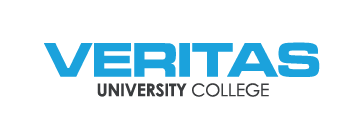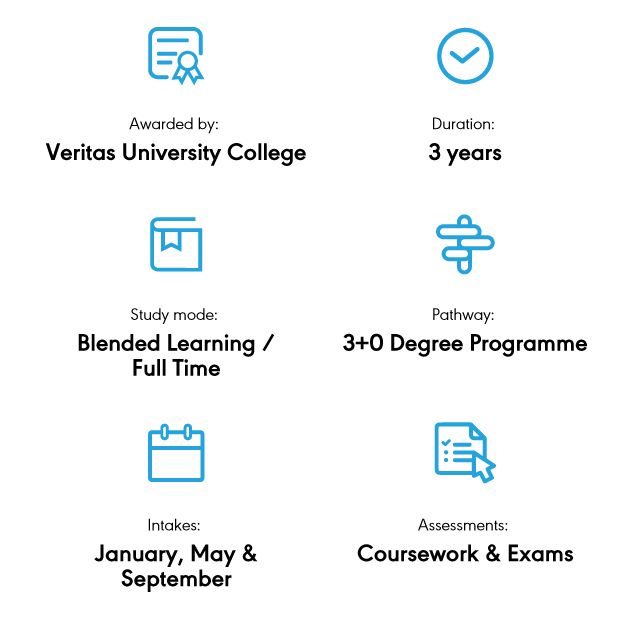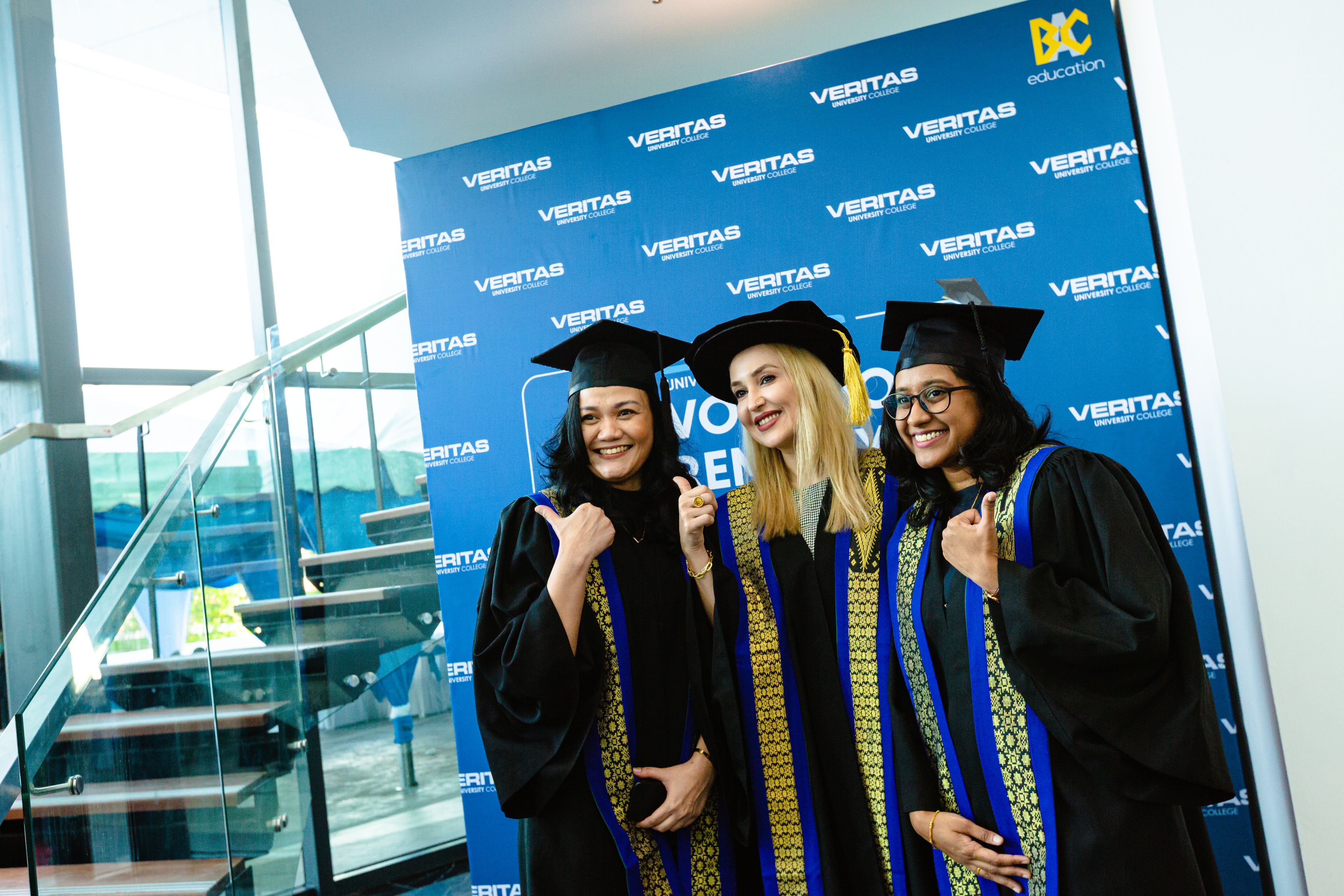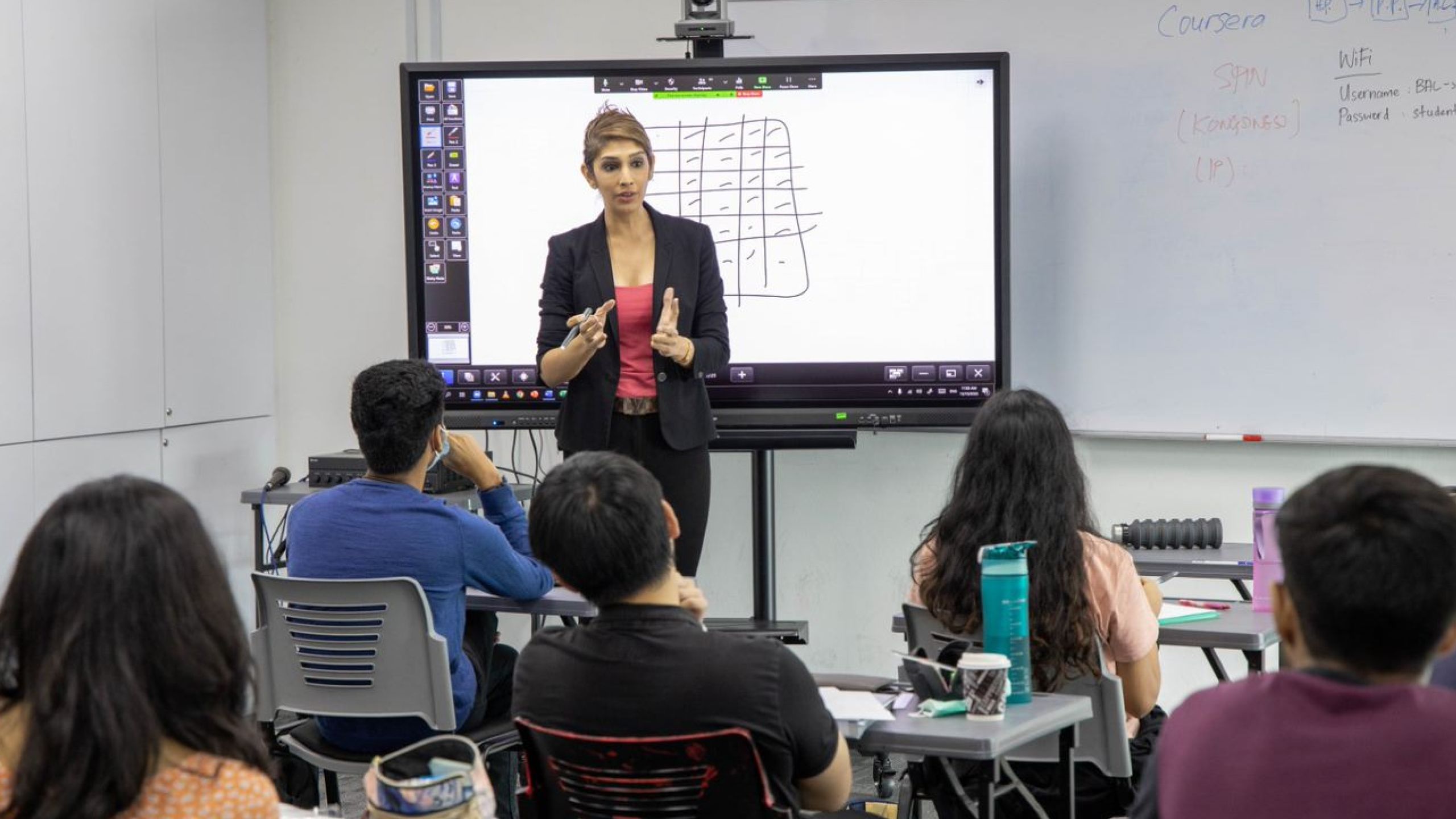Bachelor of Education (Hons) Early Childhood Education (Conventional)
Veritas University College

Course Overview
If you believe in the power of early learning to shape lives, this is the course for you. The Bachelor of Education (Hons) in Early Childhood Education is more than just a degree – it’s your gateway to a meaningful, purpose-driven career where you’ll help children take their very first steps into the world of learning.
Designed with your future in mind, this programme blends essential theory with real-world practice. You’ll dive into everything from child development and educational psychology to creative curriculum design, technology in the classroom, and even entrepreneurial skills – giving you the tools to thrive in today’s dynamic education landscape.
With a growing demand for qualified educators, you’ll graduate with a strong edge – ready to teach, lead, innovate, or even pursue a Master’s or PhD in Education. Along the way, you’ll build the confidence to create safe, nurturing environments, lead diverse classrooms, and work alongside parents, communities, and fellow professionals to make a real difference.
This isn’t just about becoming a teacher – it’s about becoming a changemaker in the lives of young children.
Course Entry Requirements
- A pass in Sijil Tinggi Persekolahan Malaysia (STPM) with a minimum Grade C [Grade Point (GP) 2.0] in any two subjects, or its equivalent; OR
- A pass in Sijil Tinggi Agama Malaysia (STAM) with a minimum grade of Jayyid; OR
- 5 Bs in Unified Examination Certificate (UEC) (including English Language); OR
- Matriculation/Foundation qualification or its equivalent; OR
- A Diploma in Early Childhood Education or its equivalent; OR
- A Diploma in any field or its equivalent.
*For international students: A minimum TOEFL score of 500, an IELTS score of 5.0, or an equivalent English proficiency qualification is required.
Why choose
Veritas University College?
At Veritas, we are constantly re-thinking the learning process and leveraging on efficiency, technology and strategic partnerships to provide a holistic next gen educational journey for you. Veritas is also committed to pushing the UN’s Sustainable Development Goals by continuously developing world class programmes at some of the most affordable fees available in the market. As a result of our far-reaching efforts, Veritas has received the BrandLaureate Best Brand in Online Education award for 2020, 2021, 2022, 2023 and 2024 in recognition of our exceptional academic and co-curricular experience.

TUITION FEES
|
STANDARD MALAYSIAN STUDENTS FEE |
||
|---|---|---|
|
Year 1 |
Year 2 |
Year 3 |
|
Resource Fee: RM1,000 per year |
||
|
STANDARD INTERNATIONAL STUDENTS FEE |
||
|
Year 1 |
Year 2 |
Year 3 |
|
Resource Fee: RM1,000 per year |
||
|
THE VUC & COURSE ADVISOR RM 15,000 MALAYSIAN SCHOLARSHIP AWARD* |
||
|---|---|---|
|
Year 1 RM16,000 |
Year 2 RM16,000 |
Year 2 RM16,000 |
|
Resource Fee: RM1,000 per year |
||
|
THE VUC & COURSE ADVISOR RM 15,000 GLOBAL SCHOLARSHIP AWARD* |
||
|
Year 1 RM21,000 |
Year 2 RM21,000 |
Year 3 RM21,000 |
|
Resource Fee: RM1,000 per year |
||
COURSE MODULES
Year 1
Educational Philosophy
This module explores the development of both Western and Eastern philosophies of education, alongside the historical evolution of Malaysia’s education system. You’ll examine the National Education Philosophy, various local curricula, and the Malaysian Teacher Education Philosophy in relation to the country’s educational progress.
Educational Psychology
This module explores how people learn, focusing on teaching methods and the factors that influence learning. You'll gain insights to develop effective strategies that support children's success in school.
Child Growth and Care
This course trains you in essential baby care practices, vital for their survival, growth, and development.
Early Learning and Early Environment
This module covers creating a safe, supportive environment for children, focusing on health, safety, and the use of materials and digital tools in early learning.
Educational Sociology
This module introduces key concepts in sociology and sociology of education, exploring social structures, mobility, and change, as well as the role of cultural diversity in educational settings.
Managing Child Behaviour
This module helps you understand and apply key concepts in early childhood education, focusing on guiding children’s learning through their strengths and interests. It highlights the importance of relationships, care routines, and effective planning for their development.
Observation and Assessment in Early Childhood Education
This module covers strategies for observing and assessing child development, introducing systematic methods to build nurturing, non-threatening relationships through observation and assessment.
Partnering with Families and Community in Early Childhood Education
This module introduces tools and strategies to enhance family and community engagement, with a focus on research linking this engagement to improved learning outcomes.
Ethics and Professionalism in Early Childhood Education
This module equips you with ethical guidelines and professionalism standards for Early Childhood Education, covering key values and best practices in the field.
Computer Application
This module helps you understand key concepts and practices in the technological environment of an organisation, focusing on the systematic use of computers to support information provision and practical applications.
MPU Modules
Appreciation of Ethics and Civilisation
This module helps you appreciate the ethics and civilisation of Malaysia's multi-ethnic society, enhancing your critical and analytical thinking for life’s challenges. It focuses on the evolution of ethics and civilisation in Malaysia, examining its development from the pre-colonial to post-colonial eras.
Malay Communication 2
This module aims to help international students converse in Bahasa Melayu at a functional level while providing insights into Malaysian life, as language is a key reflection of culture.
Philosophy and Current Issues
This module explores the connection between philosophy, the National Education Philosophy, and Malaysia's National Principles. It focuses on refining critical thinking through key philosophical fields like epistemology, metaphysics, and ethics, with an emphasis on inter-cultural dialogue and shared values. You’ll gain insights into the integrated nature of academic disciplines.
Year 2
Curriculum Development
This module covers key concepts in curriculum development, focusing on the philosophical, psychological, and social aspects. You’ll learn to design a curriculum that addresses current issues like technology, education reform, entrepreneurship, and international standards.
Child Psychology
This module explores the concepts and mechanisms of human development from conception to adolescence, focusing on biological, intellectual, social, emotional, and moral aspects. It emphasises normal growth and development through a stage-developmental framework.
English for Young Children
This module covers English language development, communication, and literacy in young children, focusing on theories, teaching strategies, and the use of resources to support language and literacy in Early Childhood Education.
Mathematics for Young Children
This module introduces early Mathematics concepts and skills, helping you plan developmentally appropriate lessons through daily activities. It encourages you to prepare materials, use digital resources, and create an engaging learning environment that fosters curiosity and confidence.
Pedagogy in Early Childhood Education
This module helps improve your understanding of pedagogy and learning design principles. You’ll develop critical thinking, problem-solving, and cognitive skills by applying theories to enhance learning experiences. It also covers evolving technological trends in education.
Music and Movement for Young Children
This module introduces teaching music, drama, and movement in early childhood education, highlighting their role in enhancing other learning areas. It provides a foundation in theory, methodologies, practical activities, and the significance of these subjects in the Early Childhood curriculum.
Curriculum and Instruction in Early Childhood Education
This module offers a comprehensive understanding of curriculum and theories. It focuses on developmentally appropriate planning, evaluation, and modification of Early Childhood Education curriculum design.
Science for Young Children
This module introduces teaching Science in early childhood education, focusing on the use of materials and digital resources. It covers instruction, curriculum, and strategies to help you become an effective and competent Science teacher.
Spiritual and Moral in Early Childhood Education
This module focuses on fundamental values, key concepts on moral, social and spiritual inculcated in young learners. It helps you to form effective interpersonal skills, discuss different approaches and activities to teach and integrate moral values within social and culture diversity.
Art and Craft for Young Children
This module introduces teaching art in early childhood education, focusing on a child's creative process to deepen your understanding of development. It explores the factors influencing children's creative expression and examines how art can enhance the curriculum for meaningful learning.
Online Teaching for Young Children
This module develops knowledge and skills in technology-based teaching and learning for Early Childhood Education. You’ll explore various digital technologies and applications that support preschool online teaching and learning.
Cognitive Psychology
This module studies mental processes, focusing on how the mind works. You’ll explore key concepts in cognitive psychology, including perception, attention, memory, and decision-making, and understand how these processes influence how children think, explore, and learn.
Emerging Trends and Technologies K-12
This module will help you evaluate and implement technology in the most useful way within their virtual classroom setting. It discusses the possibilities and challenges of using technology in fully online environments.
MPU Modules
Community Service 2
This module helps you understand the role of civic activities in society, contribute to community service or charity, and apply marketing management principles. It allows you to demonstrate the skills needed to plan, organise, implement, and evaluate a community service project.
Year 3
E-learning Ecologies
This module covers best practices in e-learning, including online instruction, student engagement, and using synchronous and asynchronous technologies. You’ll also explore online assessments and technology adoption in Asian and Western contexts.
Measurement and Evaluation
This module covers key concepts in testing, measurement, assessment, and evaluation. It focuses on techniques for determining assessment effectiveness, including reliability, validity, item analysis, and statistical procedures for interpreting results.
Health, Safety and Nutrition in Early Childhood Education
This module focuses on the aspects of health, safety, and nutrition for young children. The topics covered include policies and procedures of nutrition; basic concepts of food and nutrients, safety, and maximising the child’s potential through health.
Malay Language for Early Childhood Education
This module provides an overview of Bahasa Melayu language development, communication, literacy, and listening skills in young children. It focuses on language and literacy theories, teaching strategies, and the use of materials and digital resources to support language development in Early Childhood Education.
Action Research in Education
This module covers key concepts in action research, including the processes and procedures for conducting research. You’ll learn fundamental research techniques in problem identification, data collection, and analysis, leading to the development of an action research plan.
Young Children with Special Needs
This module provides essential information on young children with special needs, guiding you through identification, activity modification, assessment, and additional support. It equips you to provide effective education for children with special needs and gifted children.
Leadership and Advocacy in Early Childhood Education
This module helps you understand the responsibilities and challenges of being a professional leader in Early Childhood Education. It focuses on leadership models and theories, along with the management of Early Childhood Education services.
Programme Planning and Development in Early Childhood Education Settings
This module introduces the principles and models for programme planning and development in Early Childhood Education. You’ll learn about different curricula, organisational systems, and theories, focusing on scheduling and evaluation for continuous programme improvement.
Google and Cloud Computing
This course introduces key concepts of cloud computing in education, covering cloud computing models and products from various vendors. You’ll also learn how cloud computing applies to education and explore security issues and challenges.
Abnormal Psychology
This module explores the link between personality theory and common mental health issues in children and adults, such as stress, depression, eating disorders, substance abuse, and suicide. It also introduces clinical intervention within a developmental framework.
Regulations, Licensing and Law in Education
This module covers ethics in education, along with health, safety, and nutrition regulations, including first aid, communicable diseases, and safety policies. It also addresses child abuse recognition and reporting, and teaches how to respond to regulations, licensing, and laws affecting programs for young children.
Instructional Technology for Teachers
This module introduces foundational theories and histories essential for developing expertise in instructional technology. You’ll have opportunities to synthesise and apply your learning in ways that are meaningful and productive for your professional goals.
Counselling for Children
This module helps you understand child development processes and apply this knowledge to create a developmental guidance programme, including counselling services, to meet all children’s needs. You’ll learn to apply human diversity in counselling and guidance, ensuring the programme is responsive to every child and supporting their development and achievement.
Teaching Impacts of Technology in Early Childhood Education
This module focuses on the fundamentals of teaching the impact of technology in nursery and preschool settings. It explores how teachers interact with and benefit from technology, as well as the impact of technology and computing in early childhood education.
Practicum (TASKA)
The practicum is the final experience where you’ll demonstrate the knowledge, skills, and dispositions learned throughout the programme. You’ll complete an 8-week full-time practicum in a TASKA.
Practicum (TADIKA)
The practicum is the final experience where you’ll demonstrate the knowledge, skills, and dispositions covered in all programme courses. You’ll need to complete an 8-week full-time practicum in a TADIKA.
You might also like these Courses.
Master of Education
Our Master of Education will prepare you for career paths in academia by honing your creative and dynamic skills, and ensuring you are adaptable to rapid changes in our increasingly digitalised world.
PhD in Education
This locally accredited and globally recognised qualification is suitable for technical experts looking at getting into academia and those who intend to progress into education management. It is designed to be pursued remotely from anywhere in the world with dynamic supervision available online through dedicated digital conference platforms to assist in your research-based coursework.
Postgraduate Diploma in Teaching & Learning
This programme is designed for those with a Bachelor’s Degree in any field, related to any of the areas of specialisations, to obtain a professional teaching qualification. Taught by a faculty of recognised field-experts, you will learn about current trends and issues in education, apart from developing practical skills essential in today’s growing demand of integrated learning.



You Might Also Like These Courses
Master of Education
The Veritas Master of Education will prepare you for career paths in academia by honing your creative and dynamic skills, and ensuring you are adaptable to rapid changes in our increasingly digitalised world.
PhD in Education
The Veritas PhD in Education will equip you with advanced knowledge and research skills in the field, allowing you to make a significant impact on educational practices and policies. It will also open opportunities for leadership positions in academia, research institutions, or educational organisations.
Postgraduate Diploma in Teaching & Learning
Whether you're a new teacher looking to build a solid foundation or a seasoned educator seeking to stay abreast of emerging trends, this course equips you with the knowledge and credentials necessary to thrive in today's dynamic educational landscape.







